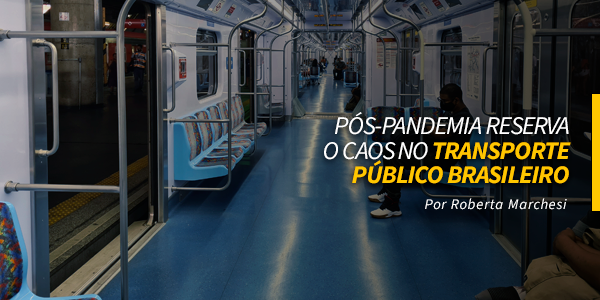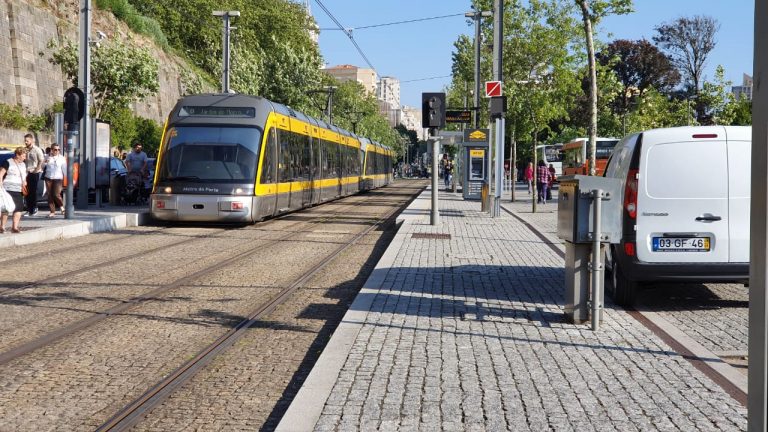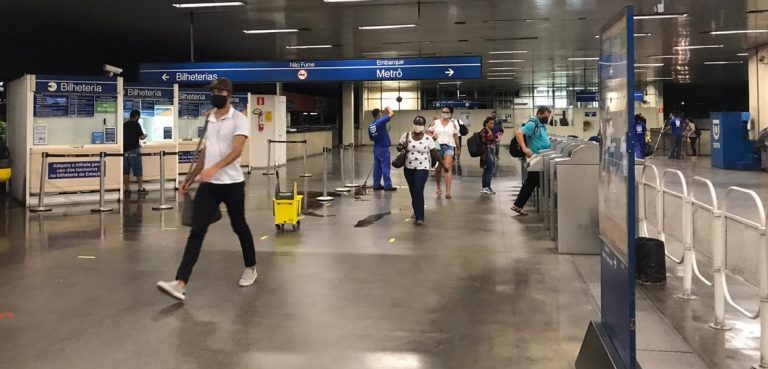* Roberta Marchesi
Partnerships between government and private initiative are important for the development of infrastructure projects in Brazil and it would not be different with the urban metro-railway sector of passengers, where private investor is an ally to the fast development of projects. The concessionaire, by having freedom of negotiation, may develop and amplify its supply chain, giving more speed to works for systems implantation. The improvement of the concession process facilitated the investments in construction, equipment acquisitions, maintenance, modernization and improvements in the systems offered.
The passenger transportation sector on rail moves today in Brazil almost 10 million people per day, in a total of 2.9 million passengers per year. The country has 12 operators, which manage 20 systems, and only four in the private operation regime.
Brazil is currently implementing 13 new projects for the transportation of passengers on rail, all already contracted and/or running. These are: VLT [light rail] Cuiabá, in the State of Mato Grosso; VLT Goiânia, in the State of Goiás; Metro Lines 6-Orange and 13-Jade, Monorail Lines 15-Silver, 17-Gold and 18-Bronze and VLT of Baixada Santista, in the State of São Paulo; East Line of the Fortaleza Metro and VLT of Fortaleza, in the State of Ceará; Salvador Metro, in the State of Bahia; VLT Rio (Porto Maravilha) and Line 4 of the Rio de Janeiro Metro, both in the State of Rio de Janeiro.
Among the 13 projects in development, seven are being designed in the public private partnership regime (PPP), which represents 53.8% of new enterprises, and state governments have already indicated the possibility of designing for private initiative the operation of two more of these 13 systems, the Cuiabá VLT and Fortaleza VLT, thus increase private participation in projects of mobility on rail.
If we consider also, that among the 13 projects in development, six are totally new systems for the cities, and that four of them are being developed in the concession model, we conclude that private participation for projects of urban mobility on rail grows to 67%. The figures show that there is a strong trend that especially the new systems be implemented in PPP regime, reinforcing the importance of the private sector in the development and expansion of rail service networks in the cities.
PPP for urban transportation on rail are standing out in Brazil, accelerating the development of projects. The resourcefulness for investments and efficiency in management of private initiative enterprises are factors that contribute to the success of PPP.
Since the first concession of urban transportation of passengers on rail in Brazil, in 1997, there are already four systems operated by private initiative. The systems with private operation amount to 282.3 kilometers of lines and 153 stations, representing about 30% of the operations in the Country.
The expectation of the National Association of Passenger Rail Operators in Brazil (ANPTrilhos) is that, until 2020, 10 new metro-rail lines in the concession regime are added to this list. These projects are being studied by the Federal and state governments, which will decide the model to be followed. They are:
| State | Project |
| Bahia | Salvador VLT |
| Federal District | VLT of the Brasília Eixo Monumental |
| Federal District | VLT of the Brasília W3 |
| Federal District – Goiás | Train Brasília-Goiânia |
| Federal District – Goiás | Train Brasília-Luziânia |
| Paraná | Line 1 of the Curitiba Metro |
| Paraná | Train Londrina – Maringá |
| Rio de Janeiro | VLT of Rio de Janeiro South Area |
| Rio Grande do Sul | Canoas Atmospheric Railway |
| Rio Grande do Sul | Line 1 of the Porto Alegre Metro |
It is expected for the coming years the continuity of this PPPs trend. Private partners are able to invest and are showing their interest in participating in the implementation of projects in the area of urban mobility. ANPTrilhos believes the private partner is an important instrument in the development of projects, and this already shows itself as a reality.
About ANPTrilhos
ANPTrilhos is a non-profit nationwide civil entity, created with the aim of promoting the development and improvement of the transportation of passengers on rail in Brazil. In an integrated vision among operators, industries and entities of the sector, ANPTrilhos seeks to work solutions and technologies that may contribute for the improvement of urban mobility in Country, in a adequate vision to the reality and the needs of each Brazilian city. With headquarters in the Federal capital, Brasilia, ANPTrilhos already counts on 100% of the metro-railways of passengers of Brazil in its membership, being consolidated as the effective representative of the sector.
* Roberta Marchesi, Superintendent of the National Association of Passenger Rail Operators (ANPTrilhos)
09/05/2016 – UITP – Funding and Financing Newsletter – Edition 5





